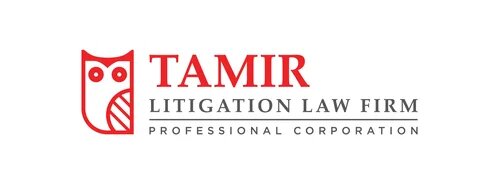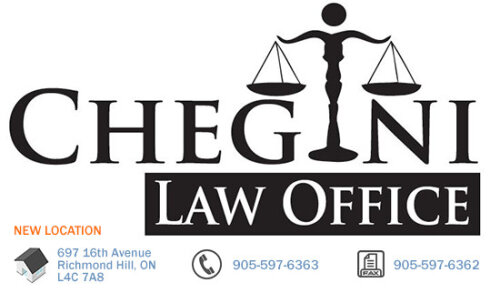Best ADR Mediation & Arbitration Lawyers in Richmond Hill
Share your needs with us, get contacted by law firms.
Free. Takes 2 min.
List of the best lawyers in Richmond Hill, Canada
About ADR Mediation & Arbitration Law in Richmond Hill, Canada
Alternative Dispute Resolution (ADR), including mediation and arbitration, is increasingly used in Richmond Hill and throughout Ontario as a way to resolve disputes outside of the traditional court system. ADR encompasses processes where parties attempt to settle their differences with the help of an impartial third party, either through a cooperative process (mediation) or a more binding one (arbitration). In Richmond Hill, ADR can be used for a wide variety of conflicts, from commercial and civil matters to family and employment disputes. These processes are designed to be more flexible, private, and often faster than litigation.
Why You May Need a Lawyer
While ADR is intended to be less formal and more accessible than court proceedings, many situations can still benefit from skilled legal guidance. Common reasons you may need a lawyer for ADR mediation or arbitration in Richmond Hill include:
- Ensuring your rights and interests are protected during the ADR process
- Drafting, reviewing, or negotiating settlement agreements or arbitration awards
- Assisting in selecting a qualified mediator or arbitrator
- Navigating complex commercial, property, or business disputes
- Interpreting the enforceability of arbitration clauses in contracts
- Providing advice in emotionally charged matters such as family law or employment disagreements
- Challenging or enforcing an arbitration award
- Addressing cross-border or multi-jurisdictional issues
Professional legal help ensures that your participation in ADR is informed, your agreements are enforceable, and your outcomes are fair.
Local Laws Overview
ADR in Richmond Hill is governed primarily by provincial legislation, including the Arbitration Act, 1991 and the Mediation Act, 2010 (where applicable), as well as rules established by local courts and organizations. Some of the key aspects of local laws include:
- Voluntary Participation: Most mediations are voluntary unless mandated by a court, as often seen in family or civil matters.
- Confidentiality: Communication during mediation is generally confidential and cannot be used in court unless all parties agree.
- Binding Decisions: Arbitration results in a binding decision (award) which can be enforced by the courts.
- Control Over Process: Parties can often choose their mediator or arbitrator, the procedural rules, and the timelines, providing significant flexibility.
- Mandatory Information Programs: In certain family law situations, parties must attend a Mandatory Information Program about alternatives to litigation, including ADR.
- Legal Representation: While not required, parties may be represented by lawyers during ADR processes.
Local mediation and arbitration services are supported by community organizations and private practitioners experienced with the nuances of Ontario law.
Frequently Asked Questions
What is the difference between mediation and arbitration?
Mediation is a cooperative process where a neutral third party helps the parties negotiate a mutually acceptable settlement. The mediator has no authority to impose a decision. Arbitration is more formal, and the arbitrator has the authority to render a binding decision after considering evidence and arguments.
Are mediation and arbitration decisions binding?
Mediation agreements are binding if the parties put the agreement in writing and both sign it. Arbitration results in a binding decision (known as an award) enforceable by the courts.
Do I need a lawyer for mediation or arbitration?
You are not required to have a lawyer, but legal representation is highly recommended, especially in complex matters, to advocate for your interests and ensure that any agreement is enforceable and fair.
How do I start an ADR process in Richmond Hill?
ADR can be started by agreement between parties, by a clause in a contract requiring ADR, or, in some cases, by court direction. You can contact local mediation or arbitration service providers or consult a lawyer for assistance.
What types of disputes can be resolved through ADR?
ADR can address a wide range of disputes, including commercial contract disagreements, employment issues, family law matters, real estate disputes, and small claims.
Is ADR confidential?
Yes, both mediation and arbitration are generally confidential, with certain exceptions (such as reporting legal violations). The details disclosed during these processes are usually not part of the public record.
Can I appeal an arbitration award?
In Ontario, it is difficult to appeal an arbitration award except under limited circumstances such as procedural errors, bias, or lack of jurisdiction. The court’s ability to overturn an award is very limited by law.
What happens if we can’t reach an agreement in mediation?
If mediation does not result in a settlement, parties still have the option to pursue arbitration or proceed to court for resolution.
Are ADR outcomes enforceable?
Yes, a written mediation settlement can be enforced like any contract. Arbitration awards are enforceable in Ontario courts under the Arbitration Act.
How do I choose a mediator or arbitrator?
Parties can mutually agree on a mediator or arbitrator, select from a roster provided by ADR organizations, or, if needed, seek appointment via applicable court procedures. It’s important to select someone experienced in the type of dispute and familiar with Ontario law.
Additional Resources
If you require legal advice or support with ADR mediation and arbitration in Richmond Hill, consider the following resources:
- Ontario Ministry of the Attorney General: Offers information on ADR processes and court-connected programs.
- ADR Institute of Ontario (ADRIO): Provides resources and directories for finding accredited mediators and arbitrators.
- Legal Aid Ontario: May offer support and information for qualifying individuals involved in ADR processes.
- Community Legal Clinics: Local clinics can provide guidance and, in certain cases, direct assistance with ADR matters.
- Richmond Hill Courthouse: Court staff can provide information on court-mandated ADR programs and referrals.
Next Steps
If you need legal assistance for mediation or arbitration in Richmond Hill, consider the following actions:
- Consult with a qualified ADR lawyer to discuss your specific situation and options.
- Gather all relevant documents, contracts, and correspondence related to your dispute.
- Consider whether your issue might be suitable for mediation, arbitration, or both.
- Research local ADR professionals, or request referrals from legal organizations or your lawyer.
- If you are involved in litigation, discuss with your lawyer whether court-connected ADR is required or recommended for your case.
- If immediate legal advice is needed, reach out to local legal clinics or the Law Society of Ontario’s Lawyer Referral Service.
Taking these steps can help you resolve your dispute efficiently, affordably, and with your rights fully protected.
Lawzana helps you find the best lawyers and law firms in Richmond Hill through a curated and pre-screened list of qualified legal professionals. Our platform offers rankings and detailed profiles of attorneys and law firms, allowing you to compare based on practice areas, including ADR Mediation & Arbitration , experience, and client feedback.
Each profile includes a description of the firm's areas of practice, client reviews, team members and partners, year of establishment, spoken languages, office locations, contact information, social media presence, and any published articles or resources. Most firms on our platform speak English and are experienced in both local and international legal matters.
Get a quote from top-rated law firms in Richmond Hill, Canada — quickly, securely, and without unnecessary hassle.
Disclaimer:
The information provided on this page is for general informational purposes only and does not constitute legal advice. While we strive to ensure the accuracy and relevance of the content, legal information may change over time, and interpretations of the law can vary. You should always consult with a qualified legal professional for advice specific to your situation.
We disclaim all liability for actions taken or not taken based on the content of this page. If you believe any information is incorrect or outdated, please contact us, and we will review and update it where appropriate.











